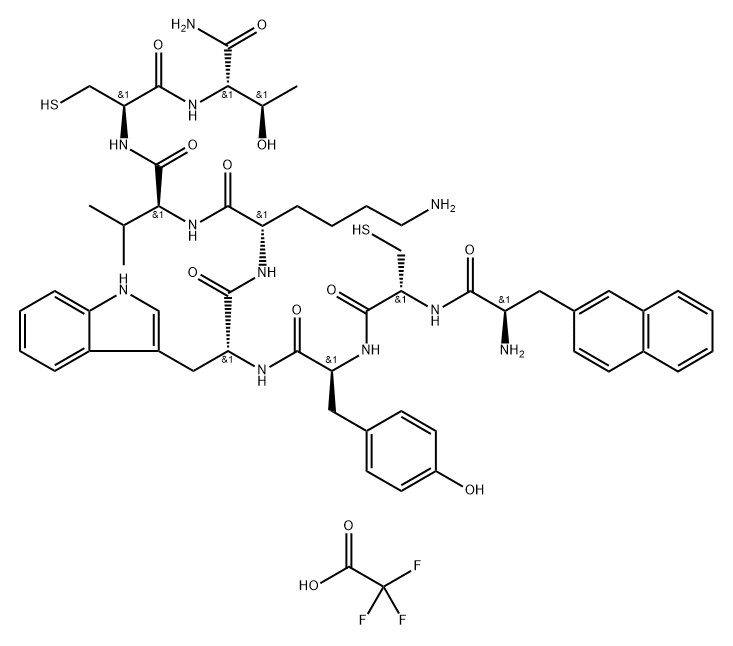Biological Activity
Angiopeptin TFA, a cyclic octapeptide analogue of somatostatin, a weak sst2/sst5 receptor partial agonist with IC50 values of 0.26 nM and 6.92 nM, respectively. Angiopeptin TFA is a potent inhibitor of growth hormone release and insulin-like growth factor-1 (IGF-1) production. Angiopeptin TFA inhibit adenylate cyclase or stimulate extracellular acidification. Angiopeptin TFA has the potential for coronary atherosclerosis research[1][2].
Angiopeptin (0.1 nM- 10 μM; for 1 h) TFA acts as a partial agonist (pEC50=6.57) with a maximum response of 423% at 3 μM on the release of tritium on CHO hsst2 cells[2].
Angiopeptin (20 and 50μg/kg; i.h.) TFA significantly inhibits neointimal formation[1].Angiopeptin (20 μg/kg; per day) TFA significantly inhibits coronary artery myointimal proliferation in cardiac allografts by appmximalely 50%[1].
References
[1]. Lundergan CF, et al. Peptide inhibition of myointimal proliferation by angiopeptin, a somatostatin analogue. J Am Coll Cardiol. 1991;17(6 Suppl B):132B-136B. [2]. Alderton F, et al. Somatostatin receptor-mediated arachidonic acid mobilization: evidence for partial agonism of synthetic peptides. Br J Pharmacol. 2001;132(3):760-766.
